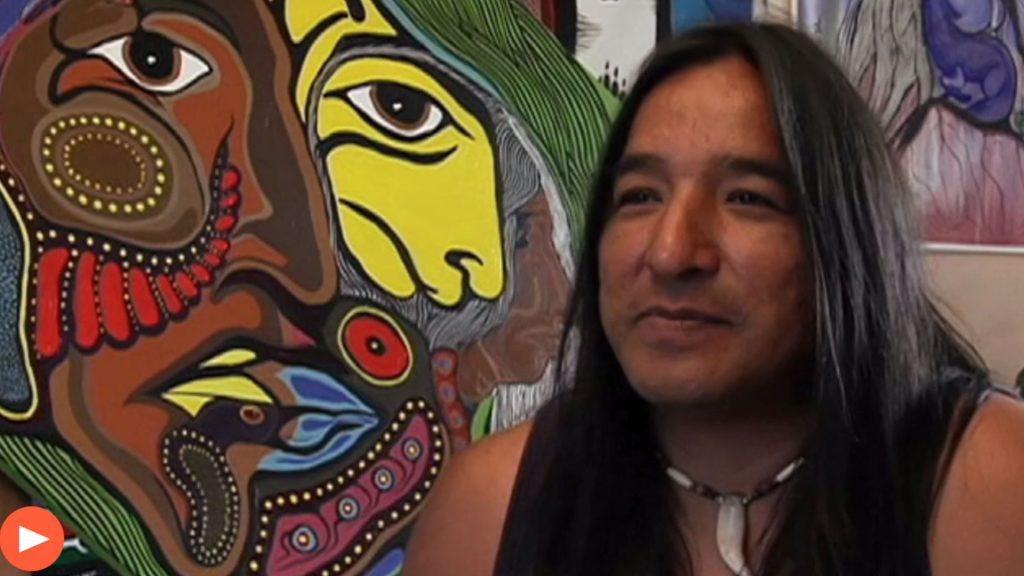
Moses Beaver was a renowned Oji-Cree artist who died in 2017. Photo: National Film Board
An inquest into the death of a renowned Indigenous artist while in Thunder Bay’s custody will aim to offer guidance on addressing mental health care challenges in First Nations, the presiding officer said as the inquest opened on Monday.
Moses Beaver, of Nibinamik First Nation, was 56 when he was found unresponsive in his jail cell in February 2017 before being transferred to the Thunder Bay Regional Health Sciences Centre, where he was pronounced dead.
Dr. Louise McNaughton-Filion, the inquest officer, told a jury on Monday the probe’s objective is to determine the circumstances surrounding the Oji-Cree man’s death and to make recommendations on how to provide mental illness care both in Thunder Bay’s jails and across remote First Nations.
“This inquest is mandatory,” McNaughton-Filion said in her opening statement.
“An inquest ensures that the death of one of our members will not be overlooked, concealed or ignored…A significant number of recommendations that are implemented following inquests have often led to important changes in policies, procedures and legislation.”
Moment of silence
Before her opening statement, McNaughton-Filion also held a moment of silence for Beaver and his sister, Mary Wabasse, who died days after her brother in a collision as she was travelling to comfort family members and make funeral arrangements.
The coroner’s counsel, Robert Kozak, told the jury that approximately 32 witnesses will be called during the 20-day inquest, including jail staff, police officers, Beaver’s loved ones, health experts and community members.
They will also hear that Beaver, who was a self-taught Woodlands artist, had mental health issues and had sought help.
“You’ll hear about his community…that has some challenges that relates to health care, and that’ll be an important part of your evidence that you’ll be hearing in this inquest,” he said.
Kozak said jurors will in particular hear how challenging it is to get mental health support in remote communities like Beaver’s, including one witness whose focus be on bipolar disorder.
“This is the purpose of this inquest so that something like this would not happen again,” Kozak said.
“This is a public hearing. The public deserves to hear what happened to Mr. Beaver.”
Looking for answers
Nishnawbe Aski Nation (NAN) Deputy Grand Chief Anna Betty Achneepineskum said her organization and the family of Beaver are still looking for answers.
“His sudden death while in custody is troubling on many levels, especially as days went by before his death was officially acknowledged by those responsible for his care,” Achneepineskum said in a news release.
“Years later we still do not fully understand why he did not receive appropriate care and the circumstances that led to his death,” the release said. “We support his family’s demand for accountability and will do everything possible to support them throughout this difficult process.”
McNaughton-Filion adjourned the proceeding until Tuesday because some witnesses were unavailable.
With files by Dennis Ward









